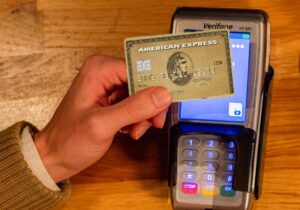 Is passing on credit card fees to customers right for my business?
Is passing on credit card fees to customers right for my business?
Business owners across the country are making the move to charge customers a credit card fee to help lower their costs of card processing. So, how does this work, what is the right way to do it, and is it the best thing for my business?
Credit card convenience fees
 Credit card convenience fees have been around for many years in one form or the other. Merchants have come up with several ways to offset the 2-4% they pay to the card processing industry for the ability to use credit and debit cards as a form of payment.
Credit card convenience fees have been around for many years in one form or the other. Merchants have come up with several ways to offset the 2-4% they pay to the card processing industry for the ability to use credit and debit cards as a form of payment.
For simplicity's sake, we have broken them down into three basic categories:
1. Setting a minimum amount for a purchase using a card
Because card processing fees are made up of a percent of the total transaction plus a per transaction fee, some smaller ticket sales are costing as much as 6%-8% of the sales transaction just to process the sale. As a result, some merchants require a minimum purchase of $5-$10 to use a card.
While this practice does reduce the effective rate, it is not allowed by the card brands and could result in a suspension of the merchants ability to accept cards.
2. Adding a surcharge to the purchase amount
 A payment card surcharge, also known as a checkout fee, is an additional fee that a merchant adds to a consumer's bill when he or she uses a card for payment. It's legal in most states (although some state do not allow it) but it comes with a strict set of rules.
A payment card surcharge, also known as a checkout fee, is an additional fee that a merchant adds to a consumer's bill when he or she uses a card for payment. It's legal in most states (although some state do not allow it) but it comes with a strict set of rules.
For instance, merchants must:
- notify the card brands and their acquirer at least 30 days in advance of beginning to surcharge
- disclose the surcharge as a merchant fee and clearly alert consumers to the practice at the point of sale – both in store and online – and on every receipt
- not surcharge debit card or prepaid card purchases (even if the consumer selects "credit" on the terminal at the point of the sale
- make sure the surcharge on credit card purchases does not exceed the merchant discount rate for the applicable credit card surcharged
Violations in one or more of these rules could result in losing the ability to take cards at all.
3. Offering a Cash Discount
 The idea of a cash discount program is a type of credit card processing that passes the cost of acceptance back to customers who choose to pay with a credit card or debit card. Cash discount merchant services allow business owners to continue to accept all major credit cards, but without the loss of 3-4% in fees.
The idea of a cash discount program is a type of credit card processing that passes the cost of acceptance back to customers who choose to pay with a credit card or debit card. Cash discount merchant services allow business owners to continue to accept all major credit cards, but without the loss of 3-4% in fees.
However, if you charge more at the register than the listed price, it is a surcharge, regardless of what processors call it. Even if a processor tells you that you’re simply adding a “service fee” or a “non-cash adjustment” it is still a surcharge.
While it may sound like a minor difference, it’s actually very important in terms of legality and compliance with card brand rules. Getting it wrong means risking fines or having your merchant account shut down.
So, how does a merchant offer a "Cash Discount" without breaking the rules?
Here comes the sales pitch (you knew it was coming). It's as simple as letting us handle the program for you. Our cash discount program, called "The Edge" was designed with the cooperation of the card brands to ensure that it was fully compliant and worked in the best interest of the card brands, the merchant, and the consumer.

The Edge is a dual pricing system that automatically makes the pricing adjustment within the terminal at the point of the sale.
In most cases, your credit card processing fees are completely eliminated and absorbed by the use of this program. Imagine putting that 2%, 3%, even 4% of your total revenue back onto your bottom line as profits!
Ready to find out more?
Contact us today and we can make a recommendation as to the best solution for your particular business model.
